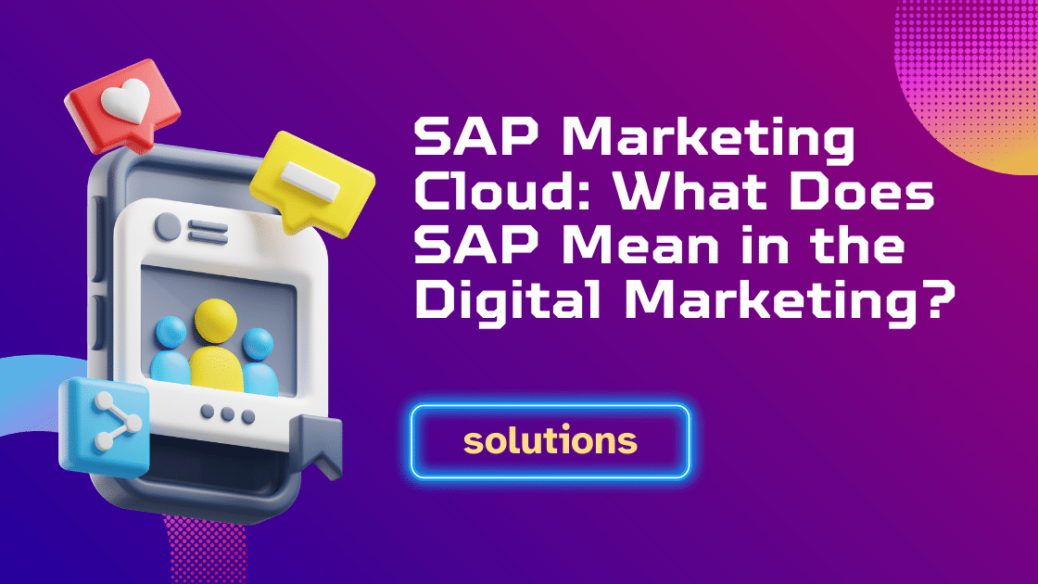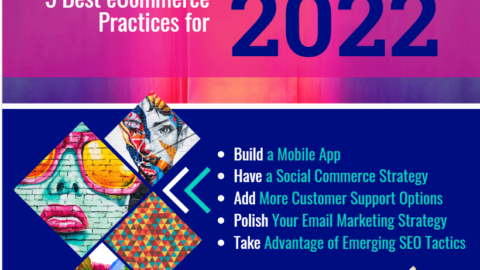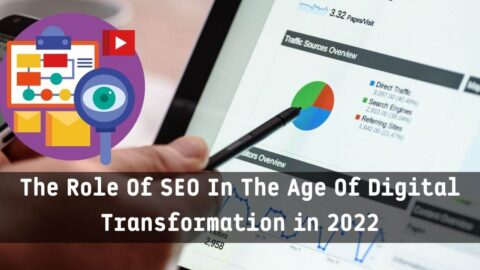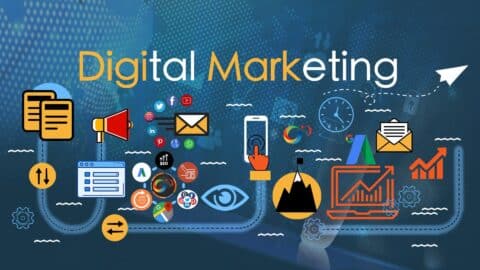SAP Marketing Cloud: What Does SAP Mean in the Digital Marketing?
In the digital marketing field, SAP marketing cloud (not salesforce marketing cloud sap) refers to a comprehensive suite of software solutions designed to empower businesses in managing their operations, customer relationships, and marketing strategies more effectively and efficiently. SAP, which stands for Systems, Applications, and Products in Data Processing, provides a robust framework for integrating various business processes, enhancing data analysis, and facilitating real-time decision-making. Within the context of digital marketing, SAP plays a pivotal role in several key areas:
Table of Contents
1. Customer Relationship Management (CRM):
SAP’s CRM solutions enable businesses to manage their interactions with current and potential customers systematically. By consolidating customer information into a single database, SAP CRM helps marketers tailor their communications and offers to meet individual customer needs, preferences, and behaviors, enhancing customer engagement and loyalty.
2. Marketing Automation:
SAP offers tools for automating repetitive marketing tasks, such as email marketing, social media posts, and campaign tracking. This automation not only increases efficiency but also allows marketing teams to focus on more strategic tasks, such as campaign planning and creative content creation.
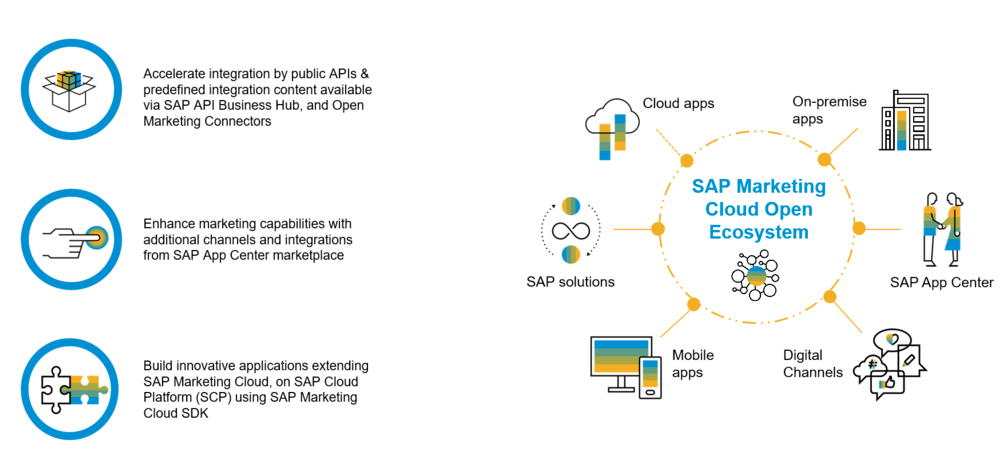
SAP marketing cloud
3. Data-Driven Marketing:
With its advanced analytics capabilities, SAP provides marketers with the tools to analyze vast amounts of data from various sources, including customer databases, social media, and online transactions. These insights enable marketers to make informed decisions, tailor their marketing strategies to specific segments, and measure the effectiveness of their campaigns in real-time.
4. Personalization:
SAP’s software solutions support personalized marketing efforts at scale. By leveraging data insights, businesses can create customized marketing messages and offers that resonate with individual customers, significantly improving conversion rates and enhancing the customer experience.
5. Integration Capabilities:
SAP excels in integrating disparate systems and software, ensuring that marketing activities are aligned with other business functions, such as sales and customer service. This seamless integration facilitates a unified approach to managing customer journeys, ensuring consistent messaging and experiences across all touchpoints.
6. Customer Experience Management:
SAP helps businesses manage the entire customer experience, from initial awareness and acquisition through to loyalty and advocacy. By providing tools for feedback collection, sentiment analysis, and customer journey mapping, SAP enables marketers to identify and address pain points, enhancing overall customer satisfaction.
In summary, SAP in the digital marketing field signifies a powerful set of tools and applications that support businesses in managing customer relationships, automating marketing processes, leveraging data for strategic decision-making, and delivering personalized customer experiences. SAP’s comprehensive solutions help organizations navigate the complexities of the digital landscape, driving efficiency, innovation, and growth.
How does SAP do marketing?
SAP, as a company, employs a comprehensive marketing strategy that includes digital marketing, content marketing, events, partnerships, and direct sales efforts. They target businesses of all sizes, emphasizing the value of their integrated solutions in improving business processes, including marketing. SAP’s marketing often highlights case studies, customer success stories, and the technical superiority of their solutions to appeal to decision-makers in organizations.
What is SAP marketing module?
The SAP Marketing Cloud (previously known as SAP Hybris Marketing) is often referred to as the marketing module within SAP’s suite of business applications. It provides tools for understanding and engaging customers through various channels and stages of the customer journey. Key features include customer profiling, segmentation, campaign management, marketing analytics, and integration with other SAP and non-SAP applications.
Is SAP Marketing Cloud a CRM?
SAP Marketing Cloud is more than a traditional Customer Relationship Management (CRM) system. While it includes CRM functionalities—focusing on managing customer data, interactions, and understanding customer behaviors—it extends beyond by offering advanced marketing capabilities like segmentation, personalization, campaign management, and analytics. It’s part of SAP’s broader Customer Experience suite, which also includes SAP Sales Cloud, SAP Service Cloud, etc., offering a more holistic approach to managing customer experiences.
Which is best, SAP or digital marketing?
Comparing SAP and digital marketing is like comparing apples to oranges. SAP is a software and technology provider offering solutions (including for digital marketing) that businesses use to optimize their operations. Digital marketing, on the other hand, is a practice or discipline focused on promoting products or services through digital channels. SAP tools can be used within a digital marketing strategy to enhance effectiveness and efficiency.
Is SAP a digital tool?
Yes, SAP provides a range of digital tools and solutions across its suite of applications. These include ERP (Enterprise Resource Planning), CRM, SCM (Supply Chain Management), and more. SAP’s offerings are designed to help businesses run their operations digitally and more efficiently, including digital marketing efforts through SAP Marketing Cloud.
How To Use SAP in the Digital Marketing Field?
Using SAP in the digital marketing field involves leveraging its suite of applications and tools to streamline marketing processes, gain insights into customer behavior, and execute targeted marketing campaigns. Here’s a step-by-step guide on how to use SAP (salesforce marketing cloud sap) for digital marketing:
1. Implement SAP Marketing Cloud:
Begin by implementing SAP Marketing Cloud, which is SAP’s comprehensive solution designed specifically for marketing purposes. It integrates various functionalities needed for digital marketing, such as customer profiling, campaign management, and marketing analytics.
2. Integrate Customer Data:
Collect and integrate customer data from various sources into SAP Marketing Cloud. This includes data from CRM systems, social media platforms, website interactions, and purchase histories. SAP’s powerful data management tools can help clean, organize, and consolidate this information to create a unified customer database.
3. Analyze Customer Insights:
Use SAP’s analytics and reporting tools to analyze the collected customer data. Look for patterns, preferences, and behaviors that can inform your marketing strategies. SAP allows for deep segmentation and persona creation, enabling you to understand your audience at a granular level.
4. Personalize Marketing Campaigns:
Leverage the insights gained from your data analysis to design personalized marketing campaigns. Also, SAP Marketing Cloud (salesforce marketing cloud sap) enables you to tailor your messaging, offers, and content to individual customer segments or even to individual customers, ensuring that your marketing resonates more effectively.
SAP Success Factors, Access Request and Risk Analysis – projectcubicle
5. Automate Campaign Execution:
Utilize SAP’s automation features to schedule and execute your marketing campaigns across various channels, such as email, social media, and your website. Automation helps ensure timely delivery and frees up your marketing team to focus on strategy and creativity.
6. Monitor and Optimize Campaigns:
Track the performance of your marketing campaigns in real-time using SAP’s analytics tools. Monitor key performance indicators (KPIs) such as engagement rates, conversion rates, and return on investment (ROI). Use these insights to make data-driven adjustments to your campaigns, optimizing them for better performance.
7. Enhance Customer Experience:
Apply the insights and capabilities of SAP to enhance the overall customer experience. This includes everything from personalized communication to ensuring consistent experiences across all touchpoints. SAP’s tools (salesforce marketing cloud sap) can help you manage the customer journey effectively, ensuring that each interaction adds value and builds loyalty.
8. Continuous Learning and Improvement:
Finally, adopt a mindset of continuous learning and improvement. Also, use SAP’s feedback mechanisms and analytics to gather customer feedback and measure satisfaction. Continuously refine your strategies, processes, and campaigns based on this feedback and the evolving trends in digital marketing.
Training and Support:
To effectively use SAP for digital salesforce marketing cloud sap, consider investing in training for your marketing team to ensure they are proficient in using SAP tools. SAP and various third-party providers offer training programs and certifications. Additionally, leverage SAP’s extensive support resources, including its knowledge base, user forums, and customer support services, to resolve any issues and optimize your use of the software.
Dear ProjectCubicle.com Readers,
We hope you’ve been finding the wealth of articles, guides, and resources on projectcubicle.com both insightful and instrumental in navigating the complexities of project management, business analysis, and beyond.
As we continue to build a community of professionals who are eager to learn, share, and grow, we want to remind you that your engagement is what truly brings value to this platform. Whether you’re a seasoned project manager, a business analyst, or someone just starting out in your career, your perspectives and challenges enrich our collective knowledge.
If you have questions that you’re wrestling with, insights you’re curious about, or topics you’d like to see covered more deeply, we encourage you to reach out. Your inquiries not only help you but also guide us in creating content that addresses the real-world problems and opportunities professionals face every day.
Are there specific project management methodologies you’re interested in learning more about? Also, do you have questions on how to leverage certain tools or technologies within your projects? Or perhaps you’re seeking advice on navigating the challenges of team leadership and stakeholder engagement? Whatever is on your mind, we invite you to share it with us.
https://www.projectcubicle.com https://www.projectcubicle.com/ Your active participation helps remain a vibrant and relevant resource. So, don’t hesitate to ask your questions or seek support. You can leave comments on articles, reach out through our contact form, or engage with us and other readers on social media. We’re here to support your journey and to facilitate a dialogue that helps everyone grow.
Thank you for being an integral part of our community. Together, let’s continue to push the boundaries of what we can achieve in the realm of project management and business strategy.

motivations
Hello, I’m Cansu, a professional dedicated to creating Excel tutorials, specifically catering to the needs of B2B professionals. With a passion for data analysis and a deep understanding of Microsoft Excel, I have built a reputation for providing comprehensive and user-friendly tutorials that empower businesses to harness the full potential of this powerful software.
I have always been fascinated by the intricate world of numbers and the ability of Excel to transform raw data into meaningful insights. Throughout my career, I have honed my data manipulation, visualization, and automation skills, enabling me to streamline complex processes and drive efficiency in various industries.
As a B2B specialist, I recognize the unique challenges that professionals face when managing and analyzing large volumes of data. With this understanding, I create tutorials tailored to businesses’ specific needs, offering practical solutions to enhance productivity, improve decision-making, and optimize workflows.
My tutorials cover various topics, including advanced formulas and functions, data modeling, pivot tables, macros, and data visualization techniques. I strive to explain complex concepts in a clear and accessible manner, ensuring that even those with limited Excel experience can grasp the concepts and apply them effectively in their work.
In addition to my tutorial work, I actively engage with the Excel community through workshops, webinars, and online forums. I believe in the power of knowledge sharing and collaborative learning, and I am committed to helping professionals unlock their full potential by mastering Excel.
With a strong track record of success and a growing community of satisfied learners, I continue to expand my repertoire of Excel tutorials, keeping up with the latest advancements and features in the software. I aim to empower businesses with the skills and tools they need to thrive in today’s data-driven world.
Suppose you are a B2B professional looking to enhance your Excel skills or a business seeking to improve data management practices. In that case, I invite you to join me on this journey of exploration and mastery. Let’s unlock the true potential of Excel together!
https://www.linkedin.com/in/cansuaydinim/

